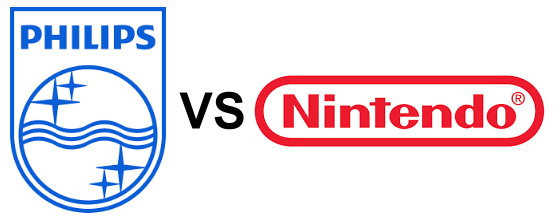Philips patents lawsuit against Nintendo
Quote from omegalfa on 04/03/2020, 19:57
This is not a news due to the fact it is from 2014.Let's make a short resume of what happened.
Philips accused Nintendo for violate at least 2 patents from 1996, used on Nintendo's gaming next generation consoles.
Philips filed a suit against Nintendo back in 2012 in the UK and Germany, then in 2013 in France and finally in the USA in 2014.The 1st patent said to be infringed describes a virtual body control device that models a user’s body in a virtual environment and lets an animated version of the body follow physical movements of the user.
The 2nd patent describes a user interface system based on a pointing device that lets users give commands to another device by moving it in a particular way.
Philips sent a warning to Nintendo about the 1st patent violation back in 2011, but the Japanese company never tried to get the rights of it, and then with the Wii U, the 2nd patent got also violated.
With this lawsuit, Philips wanted to stop importations and sells of the Nintendo consoles in the 4 countries and get compensation for damages.
In 20th of June of 2014 the Judge Colin Birss from UK patents tribunal ruled the violation of the patents 498 and 650 under the following consoles and systems:
Nintendo Wii, Wii Mini, Wii U and accessories Wii Remote, Wii Motion Plus controllers, Nunchuk, Balance Board and GamePad.In December of the same year Philips confirmed a settlement with Nintendo that involves a cross-licensing agreement that spans the patent portfolios of both companies. The other terms and all financial details were withheld.
"We are very pleased to have reached this agreement with Nintendo," said Brain Hinman, chief IPO officer at Philips. "It demonstrates that both companies recognize the importance of intellectual property rights. It also shows the value of our extensive IP portfolio and our commitment to protect our significant investments in research and development."
This is clear proof of a possible development of a possible CD-i 2 or similar system back in 1996 but unfortunatly, never made.
A definitive proof of being far ahead is time...
This is not a news due to the fact it is from 2014.
Let's make a short resume of what happened.
Philips accused Nintendo for violate at least 2 patents from 1996, used on Nintendo's gaming next generation consoles.
Philips filed a suit against Nintendo back in 2012 in the UK and Germany, then in 2013 in France and finally in the USA in 2014.
The 1st patent said to be infringed describes a virtual body control device that models a user’s body in a virtual environment and lets an animated version of the body follow physical movements of the user.
The 2nd patent describes a user interface system based on a pointing device that lets users give commands to another device by moving it in a particular way.
Philips sent a warning to Nintendo about the 1st patent violation back in 2011, but the Japanese company never tried to get the rights of it, and then with the Wii U, the 2nd patent got also violated.
With this lawsuit, Philips wanted to stop importations and sells of the Nintendo consoles in the 4 countries and get compensation for damages.
In 20th of June of 2014 the Judge Colin Birss from UK patents tribunal ruled the violation of the patents 498 and 650 under the following consoles and systems:
Nintendo Wii, Wii Mini, Wii U and accessories Wii Remote, Wii Motion Plus controllers, Nunchuk, Balance Board and GamePad.
In December of the same year Philips confirmed a settlement with Nintendo that involves a cross-licensing agreement that spans the patent portfolios of both companies. The other terms and all financial details were withheld.
"We are very pleased to have reached this agreement with Nintendo," said Brain Hinman, chief IPO officer at Philips. "It demonstrates that both companies recognize the importance of intellectual property rights. It also shows the value of our extensive IP portfolio and our commitment to protect our significant investments in research and development."
This is clear proof of a possible development of a possible CD-i 2 or similar system back in 1996 but unfortunatly, never made.
A definitive proof of being far ahead is time...

